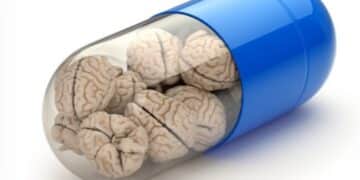Constipation is defined as moving the bowels less than three times in a week, straining to pass stool, or passing stool regularly albeit hard, dry, or similar to pellets in quality. Everyone experiences some kind of constipation every now and then so it’s normal to say that one is constipated. However, severe constipation is a different matter altogether.
You can probably say that you are severely constipated when you pass stool less than three times in a week and when you do your bowel movements produce hard, dry, and pellet-like stool. You have chronic constipation on the other hand if you experience constipation quite frequently.
Read More: Are Cooked Tomatoes Less Acidic? Surprising Facts! Best Guide 2022
Constipation Myths
While constipation is something that people will generally experience, there are still a lot of things that people don’t know about it. That’s why it’s not uncommon for some people to panic when they have severe constipation. Knowing more about the condition should help ease any fears you have so you don’t have to lose your head when constipation strikes. Constipation is manageable, after all. You just have to know what you’re dealing with.
To help shed light on severe constipation, here are some myths you may have heard about the condition and the truths behind them:
- “If you don’t move your bowels once a day, you should be worried!” The truth is, less than 50% of all the people in the world move their bowels once a day. You have nothing to worry about as long as you make more than three bowel movements in a week.
- “Bowel movements should be more frequent as you grow older.” Actually, it’s the reverse. As you age, your bowel movements will decrease.
- “If you eat healthily and drink a lot of water, you will never experience severe constipation.” While constipation is mainly affected by what you eat and drink, how you feel also factors in so it is also influenced by stressors in your life, as well as other things that could be happening in your body such as low levels of the thyroid hormone.
While severe constipation is manageable and should not generally be feared, it may point to an underlying condition so you shouldn’t ignore it. However, if your bowel troubles are alleviated by home remedies, then you should not have anything to worry about. To really gauge though, if there is really something wrong, try to assess your bout with constipation in light of all other episodes of constipation before.
If it does not fall far from what you usually experience then you should be able to breathe easy. Just let this moment of being severely constipated pass. If it’s unlike anything you have experienced before, then it’s best that you pay your doctor a visit. Even if it turns out to be nothing in the end, going to your doctor for specific advice on treating constipation will let you address you concerns sooner so you can enjoy relief sooner.
Read More about Gut Health: TipTop Gut
Constipation Remedies: The Relief You Need in Just One Pill
If you suffer from constipation, you’re not alone. It is estimated that 2.5 million people visit their doctor complaining of constipation each year! Constipation isn’t only uncomfortable, it can negatively affect your immune system and cause serious health problems down the road if left untreated. I’ve been there and I’ve tried a lot of constipation remedies. I’ll review them all in this post.
Symptoms of Constipation
Constipation is medically characterized by the inability to have a bowel movement more than three times per week. Other symptoms include hard, painful stools, a bloated feeling in the abdomen, abdominal cramping and a general “blah” feeling.
What Causes Constipation?
There are many causes of constipation. The most common causes are:
- Poor Diet
If you’re like most Americans, the vast majority of your food is fast, fried, processed or all three. Lack of nutrients and fiber in the diet is a common cause of constipation.
- Low Liquid Intake
I know when I don’t drink enough water, my constipation gets worse.
- Undiagnosed Food Allergies
Constipation can also be caused by undiagnosed gluten or lactose intolerance.
- Medication Side Effects
Constipation is a common side effect of prescription medications.
Conventional Constipation Remedies
Enema
One of the most common conventional constipation remedies is a saline laxative enema. The solution is squeezed into the rectum to stimulate a bowel movement. It’s not one of the most comfortable feelings in the world but it does work.
Stimulant Laxatives
Stimulant laxatives are also commonly used to treat constipation. They should only be used every once in the while as they can cause dependency.
Natural Constipation Remedies
While enemas and stimulant laxatives are alright for occasional use, they don’t get to the source of the problem. Natural constipation remedies can get to the bottom (no pun intended) of the problem and help your body regulate itself naturally.
Water
Water is seriously underrated. If coffee, tea and soft drinks are your usual go-to drinks, they could be making your constipation worse. You need to drink plenty of pure water to encourage your system to flush waste from your body.
Prune Juice
Your grandmother was right. Of all the old-fashioned constipation remedies out there, prune juice does the trick. I, however, don’t care for the taste of it.
Probiotic Supplements
One of the constipation remedies that get to the root of the problem is probiotics. Probiotics are the “friendly bacteria” found in yogurt, kefir and fermented foods. I used probiotic supplements for years with pretty good results.
Psyllium Fiber
Psyllium fiber is a type of water soluble fiber you can mix into water and drink. The fiber adheres to the waste matter in your bowels and helps flush it from your system. I’ll be completely honest: it works but it’s gross.
Digestive Aids
As far as constipation remedies go, digestive aids not only help relive constipation, they help you digest and absorb nutrients from your food.
Read More: Best Probiotic for Gut Health and Weight Loss
What are Prebiotics and Phenolics?
Prebiotics encourage the natural growth of beneficial bacteria in your gut. Though probiotics can reintroduce good bacteria into your gut, prebiotics are designed to help your body do it on its own. Phenolic compounds inhibit the growth of bad bacteria while encouraging the growth of good.











